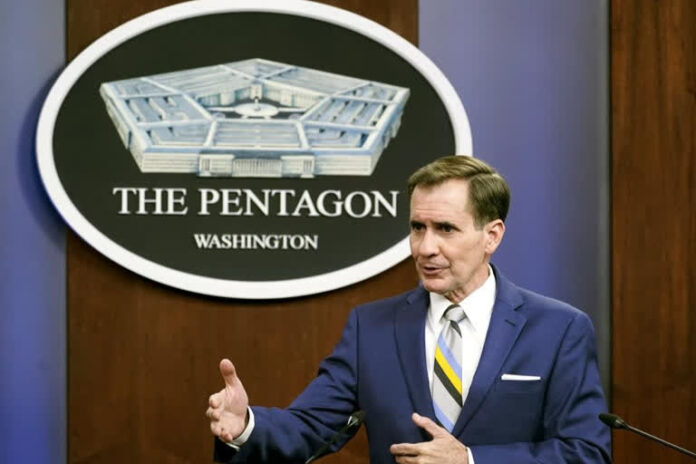| Translate This News In |
|---|
According to the Pentagon, the US has been open with Pakistan about its concerns regarding terrorist safe havens along Afghanistan’s border areas for a long time.
In the past, Afghanistan and the United States have chastised Pakistan for allowing Taliban fighters to cross into Pakistan, where they are given safe havens and medical treatment.
We’ve been forthright and honest with Pakistan about our concerns regarding safe havens on their side of the border along that spine for a long time. According to Pentagon Press Secretary John Kirby, who spoke to reporters at a press briefing on Thursday, same concerns remain valid today.
As Afghanistan’s neighbour, Pakistan has equities and obligations when it comes to terrorism in that region, according to Kirby.
In answer to a query, he stated, “We continue to have open conversations with Pakistani leaders about our concerns.”
He said, “I believe it’s important to keep in mind that the Pakistani people, too, have been victims of terrorism threats emanating from those groups and along that same border.”
While Kabul believes that Islamabad is sending hundreds of terrorists to fight in the war-torn country and providing a safe haven for the Taliban, Pakistan asserts that Afghanistan is home to the anti-Pakistani Tehreek-e-Taliban Pakistan and the secessionist Balochistan Liberation Army.
Kirby also stated to reporters that the US has the legal authority to resume drone strikes in Afghanistan.
He stated, “We feel we have the authorities we need to continue to secure the country.”
The Taliban has accused the US of breaking the withdrawal deal by continuing to fly drones over Afghanistan, and has warned the US not to do so again.
Kirby stated, “We have the authorities that we need to continue to defend our interests and the security of the American people there and around the world, and we will do so.”
Unmanned aerial assets aren’t always required for over-the-horizon missions, and they aren’t always used. The fact that we use unmanned aerial assets is undeniable, and the Secretary of Defense mentioned one that occurred just a few weeks ago in Syria. However, unmanned does not have to imply over-the-horizon. He went on to say that it doesn’t always have to be about flying.
As described by the Secretary, “over-the-horizon” means that the strike assets and target analysis come from outside the country where the operation takes place, and “we may accomplish that in a variety of ways.”


















